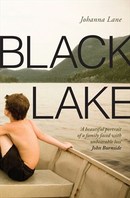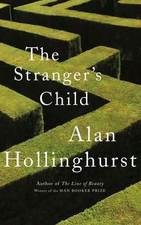 North Lees Hall AKA Thornfield in Jane Eyre
North Lees Hall AKA Thornfield in Jane Eyre 
Morrison’s article focuses on the English house in a selection of four English novels. But he acknowledges that other countries have an equal or greater claim to the big-house novel:
It's arguable that Irish country house literature surpasses ours, because the conflicts it dramatises – both political and religious – are on a larger scale.
Black Lake is about one such Irish country house, Dulough in County Donegal. Its history reflects that country’s tragedies: land sold cheaply after the Famine to a Scotsman when Ireland was still part of the British Empire; dispossessed tenants; a questionable involvement with the IRA. In composing a history of his ancestral home, John Campbell moves between pride and shame, fiction and truth, so that he can hardly tell one from the other.

The fluctuation in attitudes towards sex between men over the past century is one of the main themes of The Stranger’s Child, set in and around the magnificently ugly mansion, Corley Court. The couple in Black Lake are too absorbed in their grief to have much of a sex life, either within or outwith their marriage. But, who knows, perhaps my unconscious recognition of this motif in country-house novels can explain my embarrassing misspelling of the title on more than one occasion. (How would you feel if your poignant literary novel were announced as Black Lace on Twitter? Fortunately, Johanna Lane has a sense of humour.)
Rightful ownership:
For every surprise possession of a country house, there must also be a dispossession
says Morrison. Black Lake is all about this dispossession: the sense of loss and bewilderment experienced by the family when financial pressures force them to move out. But it’s also about an earlier dispossession when five tenant farmers were evicted from their homes when the estate was first established.
Poetry:
One of the running jokes in The Stranger’s Child is the way in which Cecil Valance becomes a celebrated poet partly by dint of his demise in the First World War and, although heir to the Corley Court estate with its thousands of acres, it’s his verse about the more modest Two Acres (although still rather grand by today’s standards) for which he is best known. The poetry of Black Lake comes, less in the plot, but in the form of Johanna Lane’s lyrical descriptions of the house and surrounding countryside.
Shifting patterns of wealth:
Over the past century, shifting patterns of wealth have led to many ancestral homes becoming unaffordable to the original families. Morrison quotes Noel Coward in 1938:
"The stately homes of England / We proudly represent / We only keep them up for / Americans to rent."
It isn’t only the Americans who have taken them over: Corley Court is requisitioned as a hospital during the Second World War and, afterwards, turned into a public school. Dulough in Black Lake is taken over by the government to be turned into a tourist attraction.
Ghost stories and whodunnits:
I used to love those Agatha Christie novels as a teenager where the house-party guests would assemble in the drawing room in the last chapter and the detective would finger the murderer. You’ve probably gathered by now that Black Lake isn’t that kind of novel.
Upstairs/downstairs:
The Campbells in Black Lake have been supported for years by Mr and Mrs Connelly who cook and clean and care for the grounds. We don’t see the events from their point of view but they appear loyal and steadfast, yet also more flexible, more able to adapt to the changed circumstances.
In conclusion, Blake Morrison says:
What the contemporary novelist finds in country houses isn't greatness but loss, failure and everyday human struggle, writ large.
I can’t think of a better summary of Black Lake.
Thanks to Tinder Press for my review copy. For a full review of the novel try Random Things through My Letterbox.
A bit of an afterthought; as I was on the point of publishing this post, the deadline was fast approaching for Charli’s latest flash fiction challenge and I had nothing to show for it. Thought I’d have a go at seeing how many aspects of the country-house novel I could cram into those 99 words:
The Belgian hadn’t summoned us to the library for cucumber sandwiches. Too late for tea and too early for cocktails; besides, who would serve them? The diminutive detective insisted on everyone’s attendance so, as the houseguests lounged on upholstered chairs, the staff lined the bookshelves, dismayed at their idle hands. Daisy blushed when she saw me, as well she might. My groin tingled, his pompous homily receding to a gentle droning, as I envisaged a repeat performance tonight. Until the words, Sir Alfred, directed every face to mine. The bulge in my trousers. I grabbed the pistol and fired.
Have you enjoyed any country-house novels? Did they fit with any of Morrison’s seven themes?
If you’ve enjoyed this post, and would like to see more in the future, why not subscribe to the blog by email via the sidebar on the right-hand side?





















 RSS Feed
RSS Feed





















